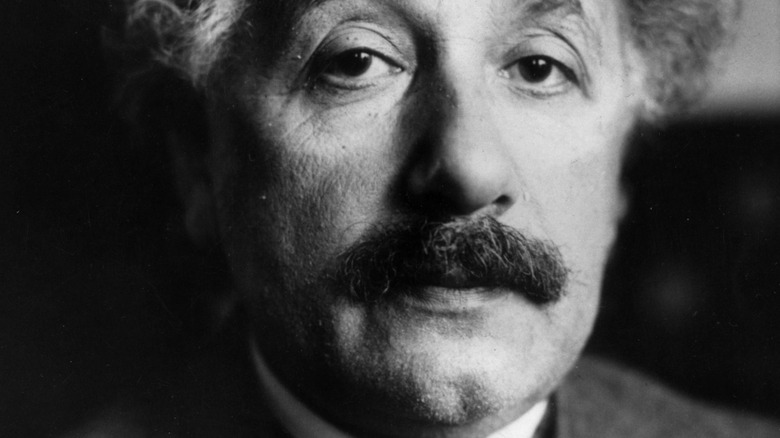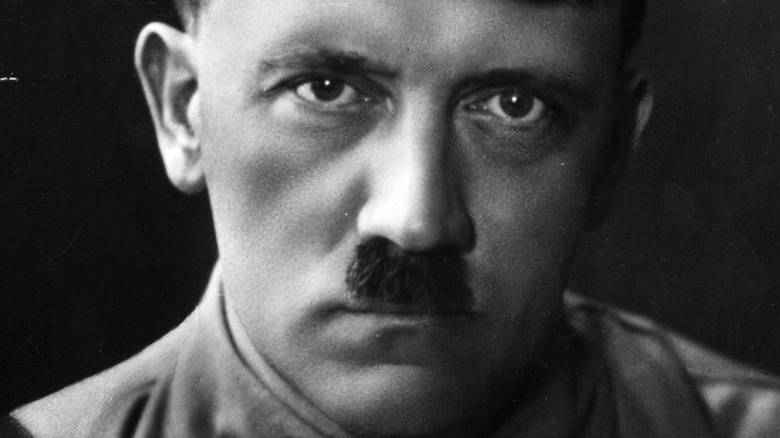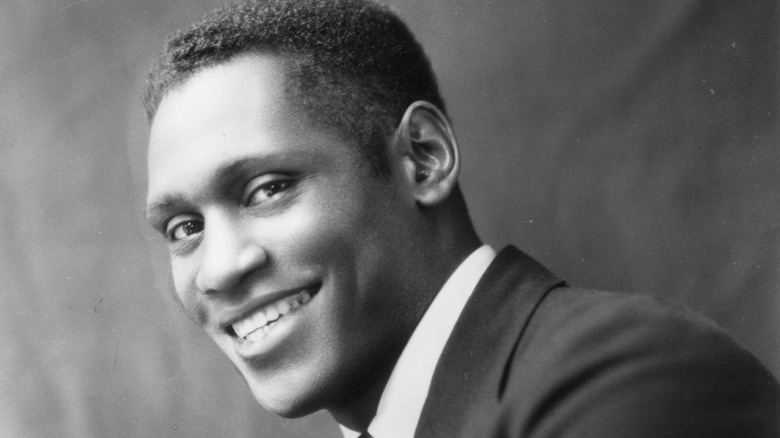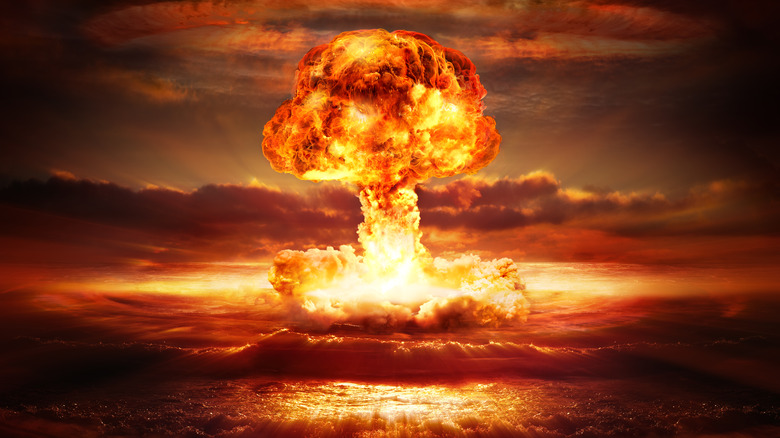How Albert Einstein's Politics Left Him Off The Manhattan Project
In August 1939, Albert Einstein sent an urgent letter to United States President Franklin D. Roosevelt. By the time he penned the letter, which was written with the help of his friend and fellow physicist Leo Szilard, Einstein was world famous. He'd already become synonymous with his elegant 1905 equation E = mc2 (energy equals mass times the speed of light squared) and had won the Nobel Prize in Physics in 1921. In the letter (per the U.S. Department of Energy), Einstein warned, " ... [I]t is conceivable that ... extremely powerful bombs of a new type may ... be constructed."
Two months later in October, after Roosevelt discussed Einstein's letter with his friend and unofficial advisor Alexander Sachs, he laid the foundation for what would become the Manhattan Project, which would ultimately produce the country's first nuclear weapons. And while Einstein gets credit for pushing the U.S. to begin developing a nuclear weapons program, he wouldn't be part of it. The government of his adopted homeland believed he held dangerous beliefs and kept him at arm's length.
A Nazi target
When Adolf Hitler became chancellor of Germany on January 30, 1933, ushering in the violent persecution of Jews and millions of others, Albert Einstein became a major target for his outspoken views on the Nazis and his belief in pacifism. The Nazis froze his family's bank accounts, ransacked their property, and even put a price on his head. He renounced his German citizenship and fled to the English countryside, telling a journalist, "I shall become a naturalized Englishman as soon as it is possible for my papers to go through," according to a story in TIME, adapted from the book "Einstein on the Run: How Britain Saved the World's Greatest Scientist" by Andrew Robinson. However, that same year, Einstein moved to the United States, began working at the Institute for Advanced Study at Princeton, New Jersey, and became a U.S. citizen in 1940.
Despite his American citizenship, contributions to science, and advanced warning to President Franklin D. Roosevelt, the U.S. government ostracized Einstein. J. Edgar Hoover, the autocratic and paranoid head of the FBI, kept a file on Einstein, beginning in 1932, that would eventually run to 1,427 pages, by the time of the scientist's death in 1955. Among Einstein's sins, in the eyes of Hoover, were his views against racism and capitalism. Hoover suspected he was a communist and at the least "an extreme radical" (via National Geographic).
Einstein spoke out
Albert Einstein believed in putting his moral belief into action. When it came to racism in his adopted country, he spoke out against it and backed it with his deeds. When a Princeton, New Jersey hotel denied the African American opera singer Marian Anderson a room, Einstein and his wife Elsa asked her to stay with them, cementing what would become an enduring friendship. He became a member of the civil rights organization the NAACP and in 1946, spoke at the historically Black Lincoln University. Speaking on segregation, he said, "It is a disease of white people," per Smithsonian.
He was friends with the African American singer and activist Paul Robeson and co-chaired the American Crusade Against Lynching (ACAL), which Robeson had founded. Einstein later also offered to testify on behalf of the writer and civil-rights activist W. E. B. Du Bois following his 1951 indictment, but the case was ultimately dismissed (via National Geographic).
Denied security clearance
On October 19, 1939, President Franklin D. Roosevelt replied to Albert Einstein's letter and told the famous physicist that he had set up a committee made up of civilian and military representatives to look into studying uranium, the precursor to the Manhattan Project. The next July, the U.S. Army Intelligence office denied Einstein the security clearance he would need to be a part of the Manhattan Project because of his political and social beliefs. Not only was he denied direct involvement, but the government also barred any of the scientists working on the project from consulting with him.
Einstein didn't seem to be bothered by the rejection. He later expressed regret in sending that 1939 letter. He told Newsweek, [H]ad I known that the Germans would not succeed in developing an atomic bomb, I would have done nothing" (per the Atomic Heritage Foundation). After the bombing of Hiroshima, Einstein became an anti-nuclear activist, saying, "The unleashed power of the atom has changed everything save our modes of thinking ... and we thus drift toward unparalleled catastrophe" (per The New York Times).



